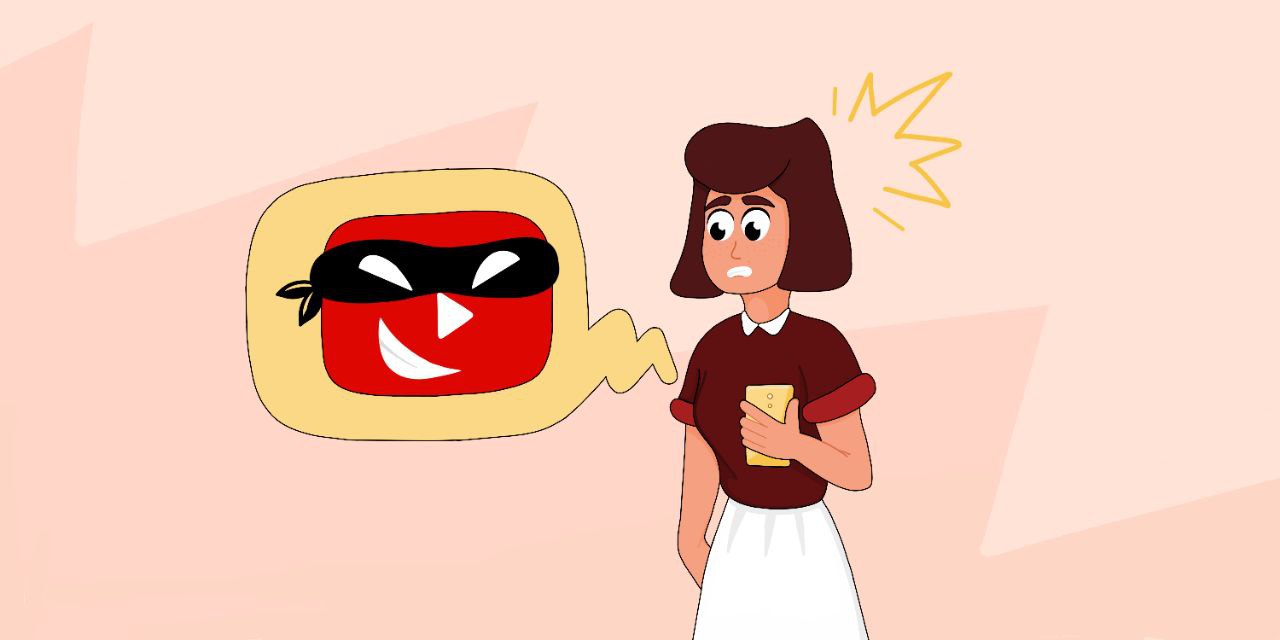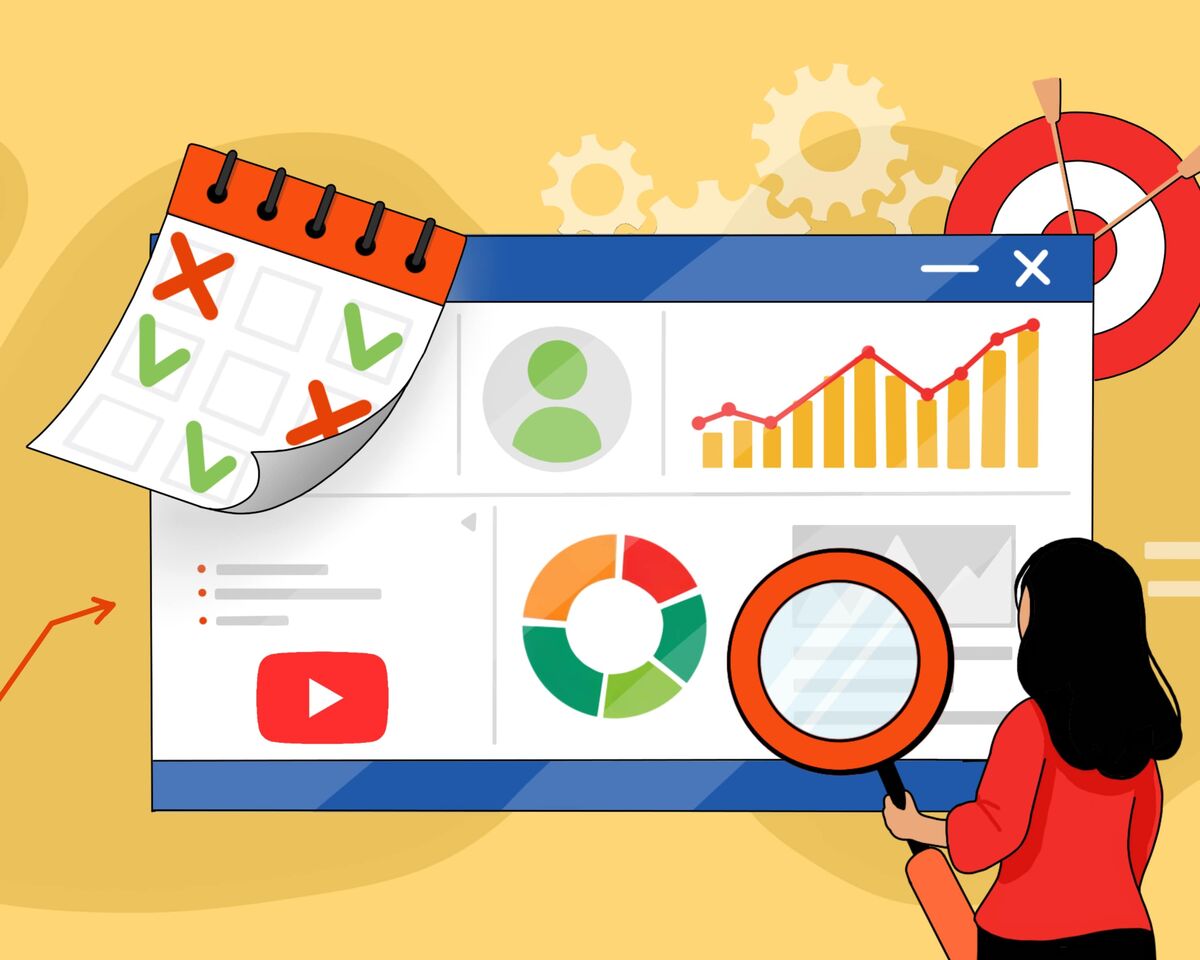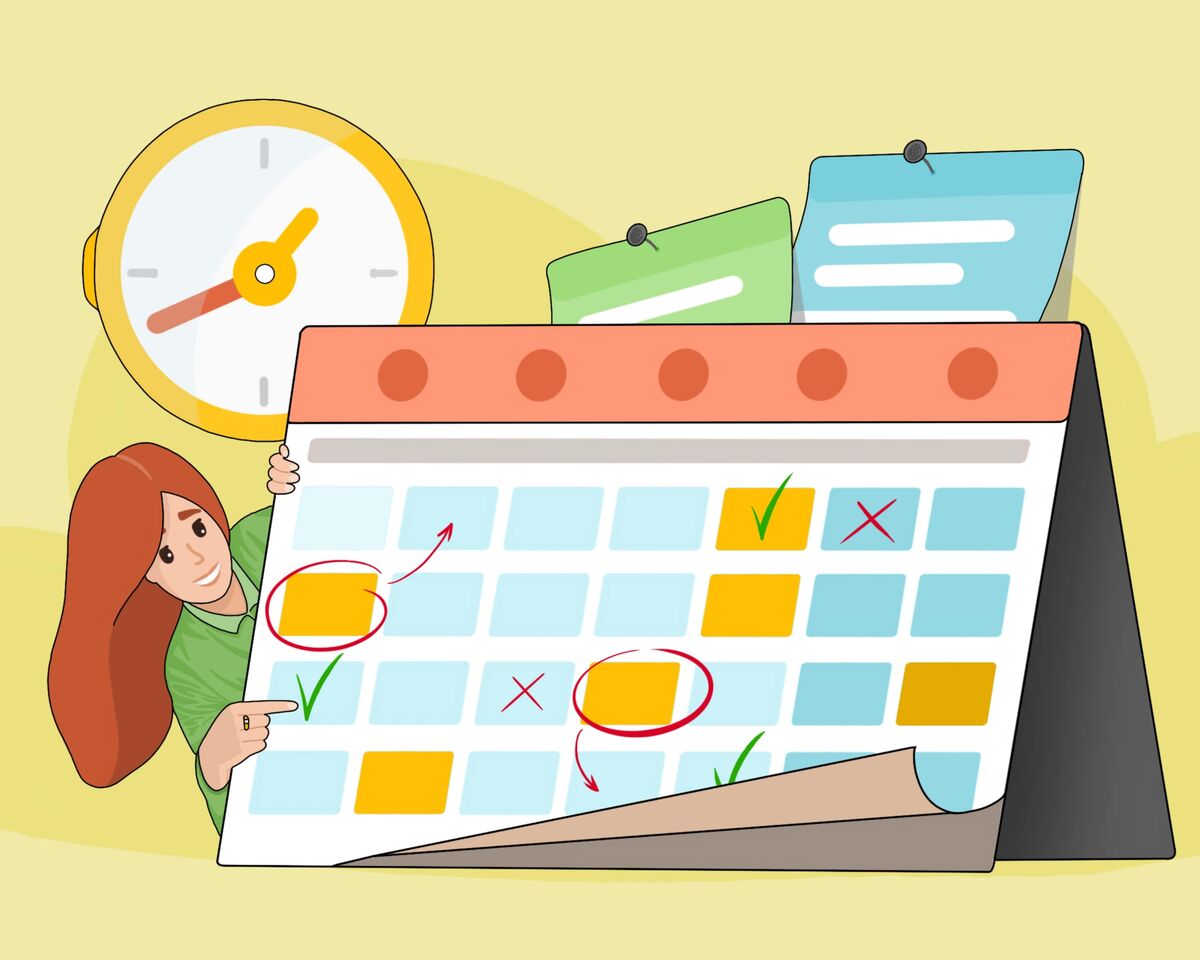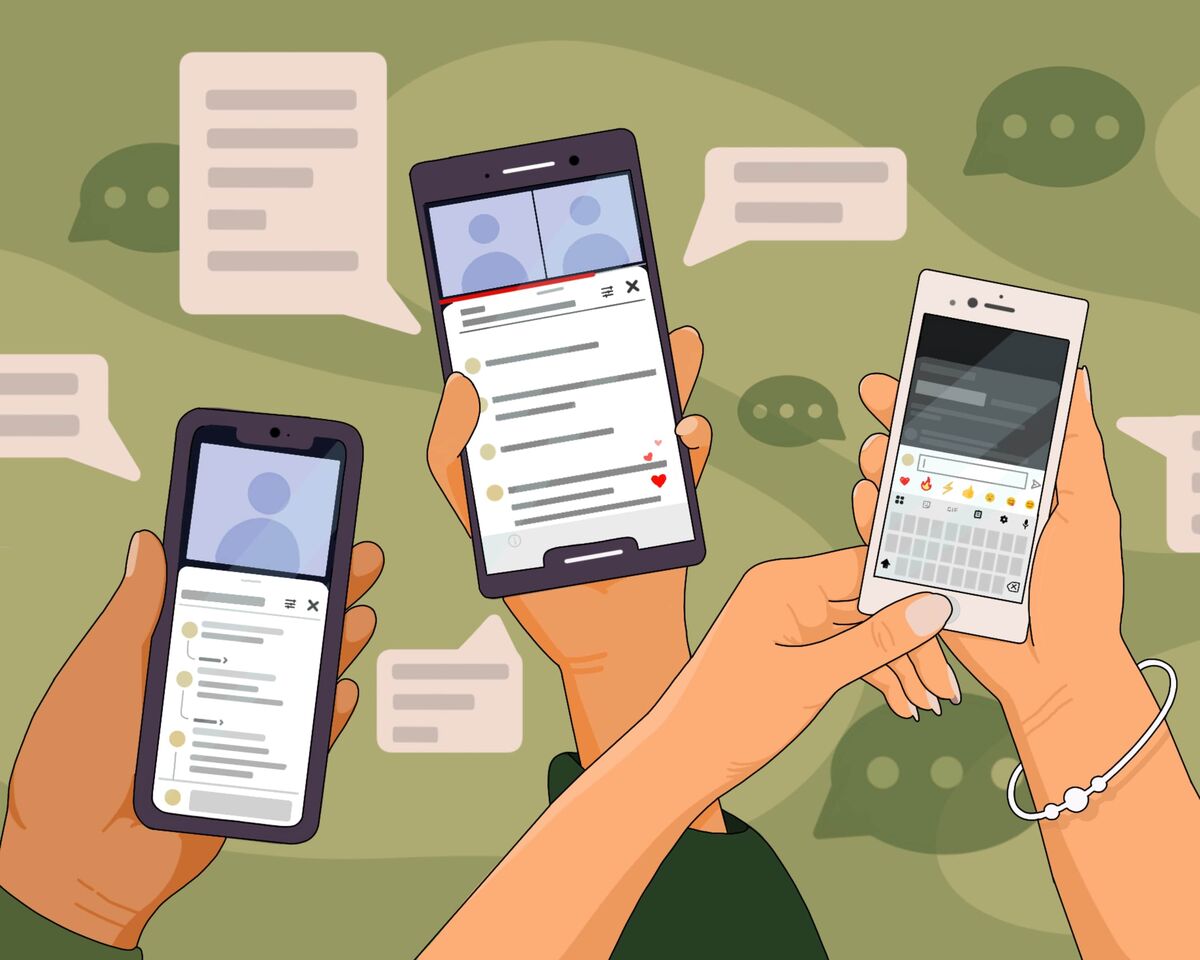The Truth About Algorithms that YouTube is Hiding

Have you noticed that YouTube often overlooks important questions from creators, its own issues, or controversial topics? Yet, YouTube is filled with information from official sources about its structure and, particularly, how its algorithms work.
Let's try to bring some clarity to this topic and figure out what really lies behind the ambiguous statements and controversial claims sometimes made by the platform's representatives.
Does YouTube cheat creators or help them?
Periodically, YouTube does inform creators about how its algorithms work, what changes are being made, and how to properly work with them.
However, experienced creators have long known that all statements should always be double-checked and sometimes even critically questioned.
Let's examine a notable event that recently occurred on YouTube.
When YouTube representatives announced their short video format, Shorts, in September 2020, with the clear goal of competing with TikTok and dominating all areas of video creation, they heavily advertised and promoted this new style of content.
You can read more about how they promoted the short format to the masses on YouTube's official blog:
- Article: “Creating YouTube Shorts - a new way to watch and create on YouTube”
- Article: "Launching YouTube Shorts in the US"
- Article: "Introducing the YouTube Shorts Foundation"
In the creators' blog, success stories of using the short’s format were constantly posted, or articles of this kind, in which Shorts were presented as almost the best tool to help creators develop and popularize their content:
- Article "Short Filmmaker Katie Feeney's Favorite Moments from The Big Game";
- Article "Investing in Empowering YouTube for Next-Generation Video".
In addition, for the Shorts PR campaign, YouTube involved some of the most popular musical performers of our time, including the K-pop group BTS:
No budgets or time were spared in promoting short videos, and initially, the platform genuinely directed more traffic to Shorts than usual. This strategy more than paid off—success stories of promotions through Shorts flooded YouTube. However, the biggest downside of this promotion method eventually hit some creators hard.
Content creators who garnered millions of views and subscribers through Shorts found their channels, which primarily featured long-form videos, suffering. The audience for Shorts simply did not watch their longer content.
And this still remains a pressing issue.
Why is this happening? The problem is that the audience attracted by short-form videos subscribes to channels specifically for this type of content, and when long-form videos are released, viewers may ignore them.
From YouTube's perspective: the creator posts a new video, subscribers don't respond to it, which means the video isn't good, and it shouldn't be recommended further.
The funniest part is that a huge number of creators initially promoted this content and advertised it not for YouTube's money, but wholeheartedly, because they saw the result in millions of views. But when problems arose, YouTube had to provide a reasonable answer to the question: "Why is this happening?"
After all this, YouTube’s representatives stated that the algorithms would be refined and reworked so that Shorts and long videos could coexist and not impact each other negatively. The algorithms have indeed changed since then, as evidenced by the regular bugs and updates on the platform. The recommendation systems also underwent significant changes. But the main question remains: has the above-mentioned problem been solved?
It's now 2024, but Shorts are still drowning out long-form content on some channels, and the strategy of creators who actively promoted short videos as a promotion tool has been tweaked from "make Shorts and get millions of views" to "make a separate channel for Shorts and get millions of views."
In other words, the problem hasn't gone away, and although algorithm changes have occurred, they aren't what uploaders expected: short video recommendations have been added to search results and the main page, and that's it.
YouTube often shares useful information but also seamlessly integrates ads for its own products into these helpful tips. It omits crucial details, even though these details are important for creators to understand any negative implications.
Therefore, it's impossible to claim that the platform either openly deceives or consistently helps creators.
Currently, there are definitely some changes happening on the platform, as many creators have seen their reach drop, views decrease, and frequent bugs in analytics display. All of this has happened on YouTube before, and it always led to some major innovation from their developers.
What it will become—we don't know yet. We just have to wait and see.
What YouTube says about their platform algorithms in 2024
On the Creator Insider channel, a video was released featuring a conversation between two YouTube representatives, Todd Beaupré and Rene Ritchie, in which they spent ten minutes discussing frequently asked questions from creators about how the algorithms work.
The first question they address is: "Can viral videos that are off-topic for the channel harm future promotion and confuse the algorithms?"
And the answer was very vague:
- First, YouTube evaluates each video individually rather than focusing on the overall content of your channel.
- Second, if the viral video was off-topic but you decide to shift your channel’s focus to this new topic, there's nothing wrong with that.
- Third, you shouldn't delete these types of videos because there will be subscribers on your channel who came for that content and will be interested in similar videos.
Todd subtly mentions that if you stop releasing videos like the one that goes viral, it could negatively impact your content in the future.
However, nobody specifies exactly how it will affect your channel. Therefore, it leaves us to speculate, ultimately leading to the strong possibility that in situations like the one mentioned, viewers who subscribe to your channel because of a viral video may not watch your main content.
For YouTube, this could be a negative signal, akin to what's happening with Shorts: if subscribers don't watch the new video, it means the video is not successful, so it will not be promoted by the algorithm.
The second point, which requires a more elaborate explanation, concerns the topic of deleting videos.
Here, a platform representative says that viral videos unrelated to the channel's topic should not be deleted because in the future, if you continue to make similar videos, they will be useful to you. In addition, we advise against deleting any videos from your channel unless you have offended someone or severely violated a policy.
The next question discussed by Todd and Rene was: "Can one bad video change YouTube's attitude towards all your content?"
The short answer: no, because algorithms evaluate each video individually.
From this arises the next topic: "Does the algorithm promote videos from certain creators?"
Here Todd mentions that the algorithm doesn't work to promote creators’ videos but rather to curate recommendations for viewers. In simpler terms, when creators talk about "algorithms," they're actually referring to the recommendation system.
Todd has often suggested that content creators should focus on their audience rather than algorithms.
Another important point: YouTube’s systems do not automatically promote creators’ videos. When you upload a video, YouTube doesn't assign it to a specific audience; instead, it includes it in recommendations for viewers with similar interests.
So it's essential to remember that platform recommendation systems work primarily for viewers, not content creators. However, the platform doesn't hesitate to test various topics.
For example, if you usually watch gardening videos on YouTube, you might suddenly see a knitting video on your "Home" page, even if you've never watched similar content. This happens because YouTube has built profiles of its viewers based on grouping of interests. If it observes that gardening enthusiasts often watch knitting videos, it might decide to show you this content as well, just in case you might be interested.
In response to this question, another interesting topic was discussed: Todd says, "We (meaning YouTube's algorithms) don't calculate recommendations until the viewer appears on the platform."
This means that your video won't be recommended until your viewer physically appears on the platform, i.e., opens the app, visits the website, or logs into their account.
This explains why sometimes you upload a video and it doesn't gain views for many hours, but then suddenly and unexpectedly starts to go viral. This is indicative of when your audience starts watching videos on YouTube en masse. And it underscores the importance of uploading videos when your audience is heavily active on the platform.
Moving forward!
Next on the agenda is the question: "Will the algorithm ever reject a video?"
Todd recommends that creators not obsess over real-time analytics or video rankings on the homepage in the Creator Studio. This is because the success of a video is often not determined within the first 24 hours after its upload.
The point is that recommendation systems don't care how much time has passed since the video was uploaded and published. But if it suddenly starts performing well in YouTube's recommendations and people start watching it, then the system will continue to promote it.
Todd also emphasizes that people's interests and trends change, and no one knows when the topic of your video might suddenly align with these new trends. Therefore, he also recommends updating unsuccessful titles and thumbnails on previously uploaded content to give old videos a chance to reappear in viewers' radars.
And the next question on the agenda was: "Does the algorithm 'punish' creators?"
Here we're addressing some of YouTube's most persistent myths that many still inexplicably believe . Some creators get upset about low activity on their channel and are convinced that YouTube is working against them. Others blame a mystical shadow ban for all their woes.
Todd Beaupré commented on this question quite metaphorically: "YouTube tries not to unnecessarily introduce any penalty sanctions so as not to deprive a really good player of the opportunity to score goals."
In simpler terms: why sideline videos that could potentially garner millions of views.
But in reality, everything may work differently.
Consider the controversial content that YouTube restricts: pseudo-medical channels or esoterica. Let's not forget about trigger words that can send videos into the "18+" category, as well as prohibited topics, the list of which is quite small.
It might seem that, based on the prior metaphor, we can believe that viral videos on controversial topics will still be promoted by YouTube because they bring in views. However, in reality, this is a misconception that YouTube perpetuates.
We must acknowledge that YouTube will always prioritize its own interests and sidestep certain issues.
The next question posed to Todd was, "If the algorithm follows the audience, should content creators do the same?"
Creators not only should follow but need to adapt to the interests of their audience.
This is the main secret to success on YouTube: tapping into what the audience wants. In response to the question, Todd humorously quotes creators who are outraged by the platform's preference for short videos over long formats. Beaupré is confident that it's not YouTube promoting Shorts; rather, it's the audience driving YouTube to cater to their interests by watching short videos.
Beaupré assures that YouTube is not involved in manipulative practices to enhance their Shorts formats. However, we are aware of the significant effort the company invested in promoting it.
Nevertheless, the underlying idea holds true: the audience reacts to videos, and this influences the platform's recommendations, thus affecting the further promotion of content.
Moving on in the video, Todd raises a question that is very relevant to many creators: "There are creators, you know, who can say, 'Hey, you! I've been creating the same content for a couple of years now, and it's not working as well anymore'."
Yes, many creators who have been working in their niche for a long time often find that their content suddenly loses views, even though it was previously well recommended by the platform and audiences responded well to it.
The first thing to consider in this situation is audience fatigue. This indicates that your content requires changes and experimentation.
But here's Todd's opinion on the matter:
"I suggest they (the creators) look at the 'Audience' tab and see what other channels their audience is watching. There we may discover that a new channel has emerged in the niche this year, which also appeals to this audience. This channel may not have existed a couple of years ago, and you need to acknowledge that supply and demand are constantly changing. And when the supply increases with the same demand, there may be fewer views. Then you need to understand where there is still unmet demand that you can capitalize on. Or where you can better satisfy the demand you started with."
The key point of his statement is the following: all creators, one way or another, will have to keep an eye on trends and competitors in their niche.
Creators will also need to work on their YouTube promotion strategy to find "gaps" in their niche and fill them.
To do this, you need to make the following rules your daily routine:
- Track trends and competitors
- Plan your work on YouTube
- Find what makes you unique so you stand out among competitors
- Keep testing, tweaking and trying.
This is the secret to success on YouTube. The last question that the YouTube team addresses for us: "Does the algorithm prefer certain creators?"
While you might be expect to hear something like "yes, we promote big creators and overlook small channels," Todd reveals an equally important topic.
First and foremost, the promotion of each new video depends on the audience's reaction in the "Subscriptions" tab because those videos are arranged solely by upload time.
Interestingly, in conclusion, Todd undermines all the carefully crafted and insightful explanations about algorithms he provided earlier:
"Viewers can be picky and resourceful, and sometimes it's hard to understand why some things are successful and others are not."
So, what conclusions can we draw from the above? Should we stop trusting YouTube's guidance and algorithm developers? Of course not. Any official statement from the company is valuable material that every creator should try to critically analyze.
Only a thoughtful approach and a willingness to recognize both the positives and negatives of YouTube's operations will help creators develop faster and without serious setbacks.




